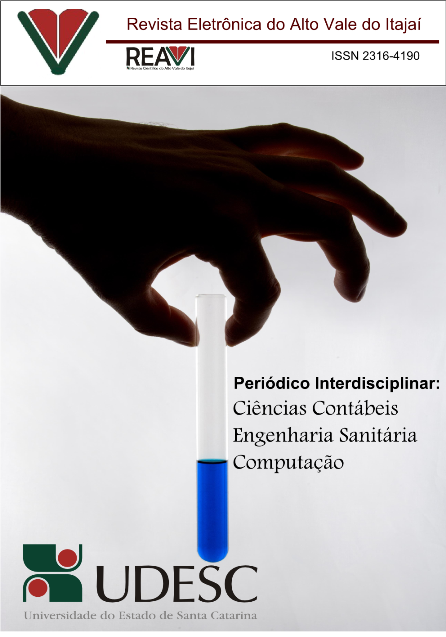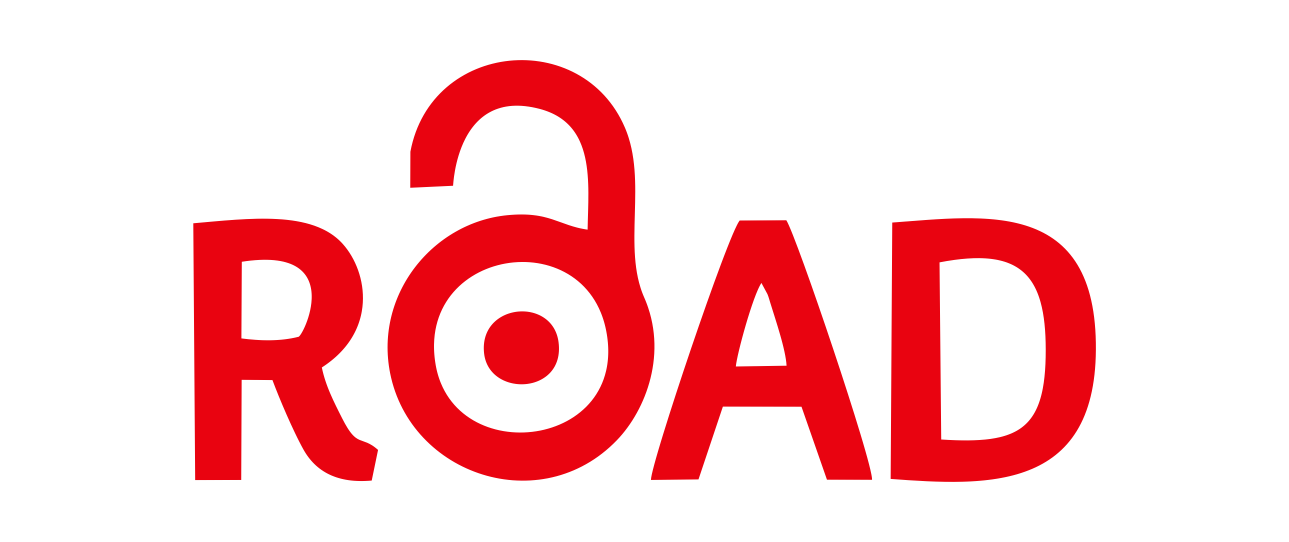Entrepreneurship and marketing: a study in the segment of bars in the city of Belo Horizonte/MG
DOI:
https://doi.org/10.5965/2764747104072015090Keywords:
strategy, marketing, entrepreneurship, managementAbstract
Currently, Brazil is among the countries with the most flawed income distribution in the world, despite the progress made throughout the last decade. In an attempt to correct some flaws in the governmental system, some social actors come into play in order to change this reality, they are so called entrepreneurs. Taking in account the previously exposed scenario, this study was developed to analyze the intersection link between entrepreneurship and marketing in the segment of bars in the city of Belo Horizonte, Brazil´s third largest city. Nowadays, the segment of Brazilian bars, which is responsible for over 23% of all enterprises in the country, is marked by a high level of competition and dynamism. In this environment, this study has the general objective to identify the main challenges of bars branches of the entrepreneurial city of Belo Horizonte. To meet this end, a descriptive qualitative study was conducted, with twelve entrepreneurs from the segment of bars in the city of Belo Horizonte / MG, Brazil. All data analysis was based on thematic content analysis, in the light of the propositions of Bardin (2006). Among the results achieved we highlight that the greatest challenges to entrepreneurs are related to lack of strategic planning and poor marketing structure. It is worth saying that most of the analyzed entrepreneurs were classified as entrepreneurs by necessity.
Downloads
References
ALVES, G. Trabalho e reestruturação produtiva no Brasil neoliberal: precarização do trabalho e redundância salarial. Revista Katálysis, v. 12, n.2, p. 188-197, 2009.
BARDIN, L. Análise de conteúdo. Lisboa: Edições 70, 2006.
BATESON, J; HOFFMAN, D. Marketing de Serviços. Porto Alegre: Bookman, 2003.
BLOCK, J. H.; SANDNER, P. Necessity and opportunity entrepreneurs and their duration in self-employment: evidence from German micro data. Journal of Industry Competition and Trade, v.9, n.2, p. 117-137, 2009.
BLOCK, J. H.; WAGNER, M. Necessity and opportunity entrepreneurs in Germany: characteristics and earnings differentials. Schmalenbach Business Review, v.62 (2), p. 154-174, 2010.
BRASIL. Decreto Lei nº 5.028, de 31 de março de 2004. Altera os valores dos limites fixados nos incisos I e II do art. 2º da Lei nº 9.841, de 05 de outubro de 1999, que instituiu o Estatuto da Microempresa e da Empresa de Pequeno Porte. Diário Oficial da República Federativa do Brasil, Brasília, p. 06, de 1º de abril de 2004, 2004.
BRASIL. Lei complementar nº 123, de 12 de dezembro de 2006. Disponível em: http://www.planalto.gov.br/ccivil_03/leis/lcp/lcp123.htm. Acesso em: 16 dez. 2014.
CZINKOTA, M. R. Marketing: As Melhores Práticas. Porto Alegre: Bookman, 2001.
CRESWELL, J. W. Projeto de Pesquisa: métodos qualitativo, quantitativo e misto (2 ed.). Porto Alegre: Artmed, 2007.
DEGEN, R. J. O empreendedor: empreender como opção de carreira. São Paulo: Pearson Pretince Hall, 2009.
DENZIN, N. K.; LINCOLN, Y. S. Planejamento da pesquisa qualitativa: Teorias e abordagens. Porto Alegre: Artmed, 2010.
DOLABELA, F. O segredo de Luísa. São Paulo: Editora de Cultura, 1999.
DORNELAS, J. C. A. Empreendedorismo: Transformado ideias em negócios. Rio de Janeiro: Campus, 2001.
DRUCKER, P.F. Inovação e Espírito Empreendedor: prática e princípios. São Paulo: Pioneira Thomson, 2005.
FESTINALLI, R.C. Estratégias empresariais em empresas do contexto empreendedor: O caso da indústria laticínio vila nova. Apresentando no encontro de estudos estratégicos da associação nacional dos programas de pós-graduação em administração, Anais... Curitiba, ANPAD, 2003.
FILION, L. J. O Planejamento do seu sistema de aprendizagem empresarial: identifique uma visão e avalie o seu sistema de relações. RAE Revista de Administração de Empresas, v.31, n.3, 63-71, 1999.
FITZSIMMONS, J. A; FITZSIMMONS, M. J. Administração de serviços: operações, estratégia e tecnologia de informação (4. ed.). Porto Alegre: Bookman, 2010.
GIL, A. C. Métodos e Técnicas de pesquisa social (5. ed.). São Paulo: Atlas, 1999.
GLOBAL ENTREPRENEURSHIP MONITOR – GEM. Empreendedorismo no Brasil, 2011. Disponível em: http://gestaoportal.sebrae.com.br/customizado/estudos-e-pesquisas/temas- estrategicos/empreendedorismo/Livro%20GEM%20Brasil%202011.pdf. Acesso em: 02 fev. 2015.
GLOBAL ENTREPRENEURSHIP MONITOR – GEM. Empreendedorismo no Brasil 2012. Curitiba: IBQP, 2012.
HITT, M. A.; IRELAND, R. D.; HOSKISSON, R. E. Strategic Management: Competitiveness & Globalization (9 ed.). South-Western: Cengage Learning, 2011.
HUNT, S. D. Marketing Theory: Foundations, controversy, strategy, resource-advantage theory. New York: M. E. Sharpe, 2010.
INSTITUTO BRASILEIRO DE GEOGRAFIA E ESTATÍSTICA. Estatística de empreendedorismo 2012. Brasilia: IBGE, 2012.
KOTLER, P. Administração de Marketing: Edição do novo milênio. São Paulo: Prentice Hall, 1998.
KUEMMERLE, W. Home base and knowledge management in international ventures.Journalof Business Venturing, v.17, n.2, p. 99-122, 2002.
MIGUEL, P. SALOMI, G. Uma revisão dos modelos para medição da qualidade em serviços. Gestão e Produção, v.14, n.1, p. 12-30, 2004.
MINER, J. B. A psychological typology and its relationship to entrepreneurial success.Entrepreneurship& Regional Development, v.9, n.1, p. 319-334, 1997.
MINTZBERG, H. O processo da estratégia (3º ed.) Porto Alegre: Bookman, 2001.
OLIVEIRA, J. R. C. Longevidade empresarial e características comportamentais empreendedoras: uma análise das micro e pequenas empresas de Teófilo Otoni e região (Dissertação de Mestrado). Faculdade Novos Horizontes, Belo Horizonte, 2010.
PETER, J. P; OLSON, J C. Comportamento do consumidor e estratégia de marketing (8 ed.). São Paulo: McGraw-Hill, 2009.
RODRIGUES, S. Empreendedorismo (1ª Ed.). Lisboa: Anje, 2008.
SCHUMPETER, J. A.A teoria do desenvolvimento econômico: uma investigação sobre lucros, capital, crédito, juros e o ciclo econômico. São Paulo: Nova Cultural, 1996.
SERVIÇO BRASILEIRO DE APOIO ÀS MICRO E PEQUENAS EMPRESAS. Pequenos Negócios no Brasil. Brasília: SEBRAE, 2013.
STEVENSON, H. H; GUMPERT, D.E.The heart of entrepreneurship.Havard Business Review, v.63, n.2, p. 85-94, 1985.
TRIVIÑOS, A. N. S. Introdução à pesquisa em ciências sociais: pesquisa qualitativa em educação. São Paulo: Atlas, 1992.
VALE, G. M. V.; CORRÊA, V. S.; REIS, R. F. Motivações para o empreendedorismo: necessidade versus oportunidade? Revista de AdministraçãoContemporânea - RAC, v.18, n.3, p. 311-327, 2014.
WILLIAMS, C. C. The motives of off-the-books entrepreneurs: necessity-or opportunity-driven?Springer Science, v.5, n.2, p. 203-217, 2008.
YIN, R. K. Estudo de caso: planejamento e métodos (4.ed.) Porto Alegre: Bookman, 2010.
ZEITHAML, V.; BERRY, L; PARASURAMAN, A. A. Conceptual Model of Service Quality and Its Implications for Future Research.Journal of Marketing, v. 49, n.1, p. 41-50, 1988.
Downloads
Published
How to Cite
Issue
Section
License
Copyright (c) 2016 Jefferson Rodrigues Pereira, Leonardo Benedito Oliveira Rezende, Caissa Veloso e Sousa, Sarah Lopes Silva, Eduardo Roberto Batista

This work is licensed under a Creative Commons Attribution 4.0 International License.
Brazilian Journal of Accounting and Management offers free and immediate access to its content, following the principle that providing scientifical knowledge in a free manner promotes a better world democratization of knowledge. Authors maintain copyright of articles and grant to the journal the rights of the first publication, according to the Creative Commons Attribution licensing criteria, which allows the work to be shared with initial publication and authorship recognition. These licenses allow others to distribute, remix, adapt, or create derived work, even if it is for commercial purposes, provided that the credit is given to the original creation.




















